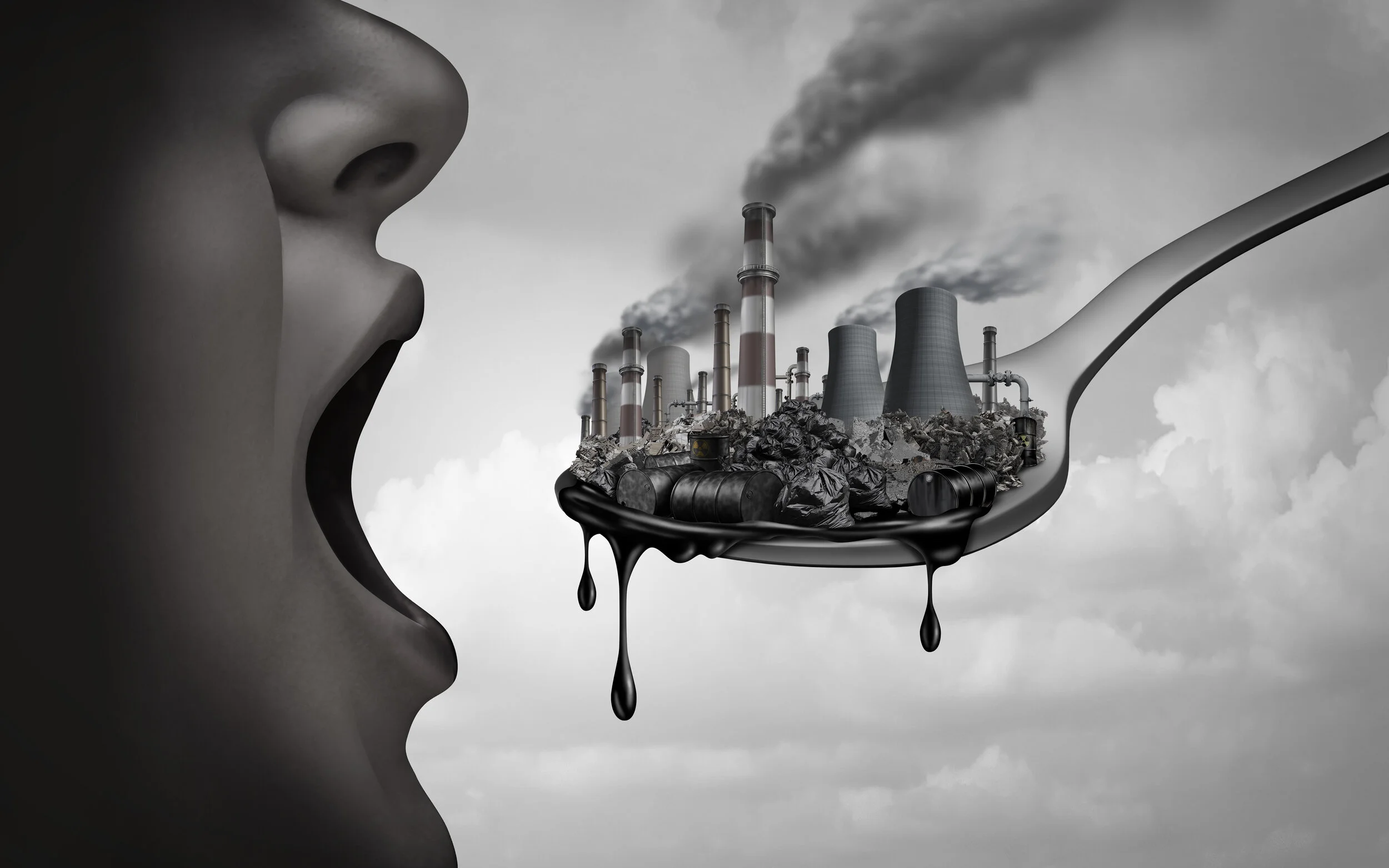Are toxins affecting your fertility and health of your unborn child?
TOXIC CHEMICALS
Consumers desire for convenience and corporate greed have led to the chemical soup we all dredge through in our day to day lives. Sadly, their profit comes at the expense of our health and the health of our children. In the United States, chemicals are innocent until proven guilty. Unfortunately, we are the science experiment simply awaiting a verdict. You may not be able to change how the world operates, but you can alter the way you operate within it. The choices you make before pregnancy in the food you eat, the air you breathe, and the products you use can all make significant improvements in your health, and the health of your future baby.
The connection between toxic chemicals and infertility is well studied and supported by research. Multiple chemicals and heavy metals are known to be hormone disruptors. For example, DDT, the insecticide now banned in many countries, has been identified as an estrogen receptor agonist, which can alter fertility. While DDT has been banned, many harmful compounds still remain in its place.
When you ingest, inhale, or touch endocrine disrupting chemicals on a frequent basis, it is a guarantee for hormonal irregularities at some point in your life. For many women, hormone dysfunction is the biggest obstacle to conceiving. It makes tracking your cycles and finding fertile days harder, it creates less stable eggs, and it could possibly halt ovulation all together.
Repeated, chronic exposure to harmful chemicals leaves us with a high toxic load. Which can be expressed as chronic headaches, fatigue, multiple chemical sensitivity, inflammatory disease, neuropathy, and more. If you give it some thought, you may be wondering, “If I am being exposed to and affected by these toxins, is my baby impacted, too?” The answer is a resounding YES.
It was once thought that the placenta was a very effective protective barrier. However, as amazing as the placenta is, we now know it can only partially protect a growing fetus. So, do we know how many chemicals actually get passed in the placenta? Yes. In fact, in a 2014 study conducted by the Environmental Working Group and its partner Commonweal, in ten children born in U.S. hospitals, a total of 287 chemicals and pollutants were found in umbilical cord blood at the time of birth. Other studies found a variety of heavy metals. Some of the most prevalent toxins found in the testing were pesticides, plastics, flame retardants, consumer product ingredients, lead, mercury, and cadmium waste from burning coal, gasoline, and garbage. The chemicals discovered have been linked to cancer, neurological disorders, and birth defects or abnormal development. [1][2]
A baby’s liver is immature and not capable of detoxifying, and he has low levels of binding proteins. Therefore, any toxins excreted out through his kidneys are recycled with his urine. In addition to his inability to detox, his blood brain barrier is not fully formed yet. That puts him at risk. It is my belief that the preexisting toxic burden a woman carries, plus her body’s inability to filter out new chemical toxicants is likely the root cause of the majority of first-time pregnancy losses.[3]
We have established the fact that a mother and her baby are negatively impacted by the toxic world we live in, but is a man affected just as much? Absolutely. Multiple toxins negatively affect male hormone production, sperm count and quality. I have found that toxin exposure as a cause of male infertility often gets overlooked. Yet, recent studies support that toxins do cause infertility in men. Toxin exposure has been linked to low sperm count and poor morphology, or size and shape of sperm, as well as altered hormone levels. These particular toxins include BPA, pthalates, PCBs, pesticides, and air pollution, just to name a few. These studies have also shown that supplementing with antioxidants such as vitamins C and E, Zinc, N-acetylcysteine, and CoQ10 increase fertility four-fold. [4] Another toxic exposure that lowers sperm count is EMF. In recent years, men have been warned to avoid wearing cell phones in their pants pockets due to EMF’s negative effect on sperm.
AVOIDANCE
The bottom line is that avoidance of toxins is an invaluable tool for maintaining your health, promoting fertility, maintaining healthy pregnancy, and growing a healthy baby. When avoidance is impossible, using daily antioxidants to help clear toxins from your body is beneficial. Here are a few tips to prioritizing your toxin elimination strategy:
Use non-toxic cleaning products
Replace plastic food containers with glass- Do not ever heat or freeze any food or beverages in plastic
Eat organic
Avoid pesticides, herbicides in your yard/gardens at home
Avoid toxic hygiene and beauty products, including sunscreen
Drink purified water
Avoid wearing your phone on your body
Avoid cigarette smoke: first, second, and third- hand exposure
Buy a mattress and couch that is free of flame retardants
Refer to my RESOURCE PAGE to see the brands and products I personally use, based on the recommendation of the Environmental Working Group database.
Learn more about the affect toxins have on your body, how to identify them, and how to detox effectively before conceiving in my book, Preparing for Pregnancy.
References:
Group, E.W., Body burden: the pollution in newborns. A benchmark investigation of industrial chemicals, pollutants and pesticides in umbilical cord blood. . 2005 July.
García-Esquinas, E., et al., Lead, mercury and cadmium in umbilical cord blood and its association with parental epidemiological variables and birth factors. BMC Public Health, 2013. 13(1): p. 841.
Mitro, S.D., T. Johnson, and A.R. Zota, Cumulative Chemical Exposures During Pregnancy and Early Development. Curr Environ Health Rep, 2015. 2(4): p. 367-78.
Mora-Esteves, C. and D. Shin, Nutrient supplementation: improving male fertility fourfold. Semin Reprod Med, 2013. 31(4): p. 293-300.






